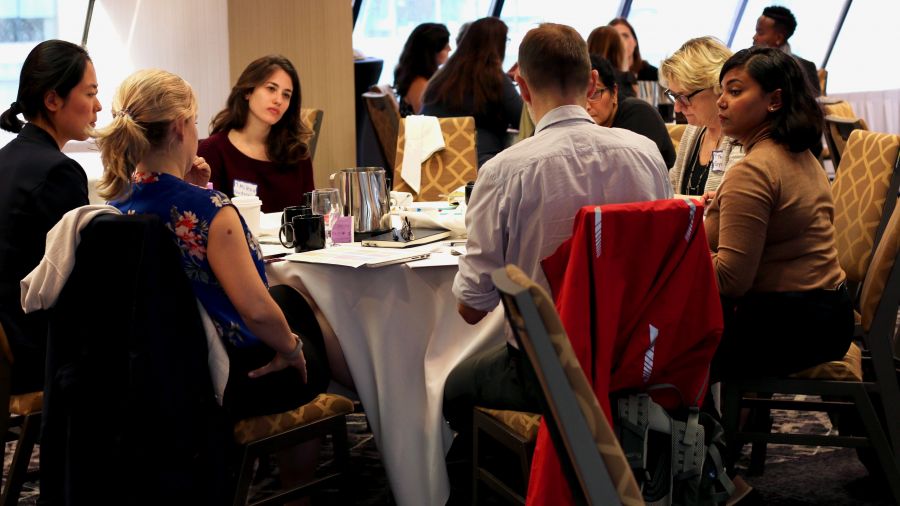
A year ago, the Canadian Collaborative for Global Health was launched.
Since then, six collaborative projects, or “Labs”, comprised of partnerships between academic, civil society and global partners have been on an innovation journey to tackle urgent data challenges in global health and gender equality. Now at their mid-point, the Labs are refining their methodologies and tools, and have already produced important insights on a host of data-related questions on topics including work in humanitarian settings, sexual and reproductive health and rights (SRHR), nutrition, adolescent health, survey methods, and more. Read more about the Labs and their key success strategies here.
On September 30th, 2019, representatives from the six Labs convened with the goal of fostering deeper connections with each other, building new support networks in the sector and digging into strengths, challenges and future directions of their projects. With a Lunch & Learn session focused on gender equality and data innovation, Labs built new support networks with gender equality, monitoring and evaluation, research, and programming experts. The room buzzed with group discussions on the challenges and opportunities of applying feminist values in gender-related data design, collection and communicating impact.
This was an opportune moment for Labs to seek input from sector experts who represent a diverse audience of intended users for the Labs’ resulting methodologies and tools. Participants identified resources, connections, and supports that could strengthen gender equality considerations and data process in Lab specific projects and across general programming.
Some takeaways include:
Lengthier project and reporting cycles can support high quality implementation and community engagement. Stronger community-based participatory action research principles – implemented through qualitative and mixed methodologies – could be used to co-create activities with the community. As an example, photovoice can be resource-intensive but can further critical dialogue about context-specific complex topics such as women’s empowerment.
Participants highlighted that understanding local lexicon, such as idioms, is crucial to supporting meaningful community participation in data. Hiring and consulting local translators and staff personnel significantly strengthens the quality of questions asked in survey tools and interview guides, and improves interpretation, especially those addressing sensitive topics in SRHR.
Feminist values needs to be prioritized beyond the “out there” work with communities. Accountability needs to be turned inward to examine whether feminist values are applied to internal institutional structures and across organizations. With values of inclusivity, do programming and research teams reflect the communities that they are working within (ex. youth representation)? Are diverse ways of knowing and learning being valued in gender and data work?
Furthermore, this packed day included fruitful conversations at Global Affairs Canada where the Labs discussed what it means to innovate effectively in data, evaluation, and research. This cross-sectoral engagement between civil society, academics and government staff reflects the leadership Canada has demonstrated in prioritising data-informed decision-making and knowledge dissemination to push the boundaries in creating a data culture.
A unique aspect of the Canadian Collaborative for Global Health is the emphasis on fostering mutual support among participants. The event closed with a working meeting between Lab participants to identify challenges and discuss how to further collaboration among the projects.
As the Labs embark into the next year of their projects, CanWaCH will be exploring opportunities to share the results of the Collaborative and the rich learnings behind the process of innovation in data. Stay tuned!
Published:
October 8, 2019
Author:
Antu Hossain, Global Health Impact Officer, CanWaCH
Categories:
SHARE THIS POST: